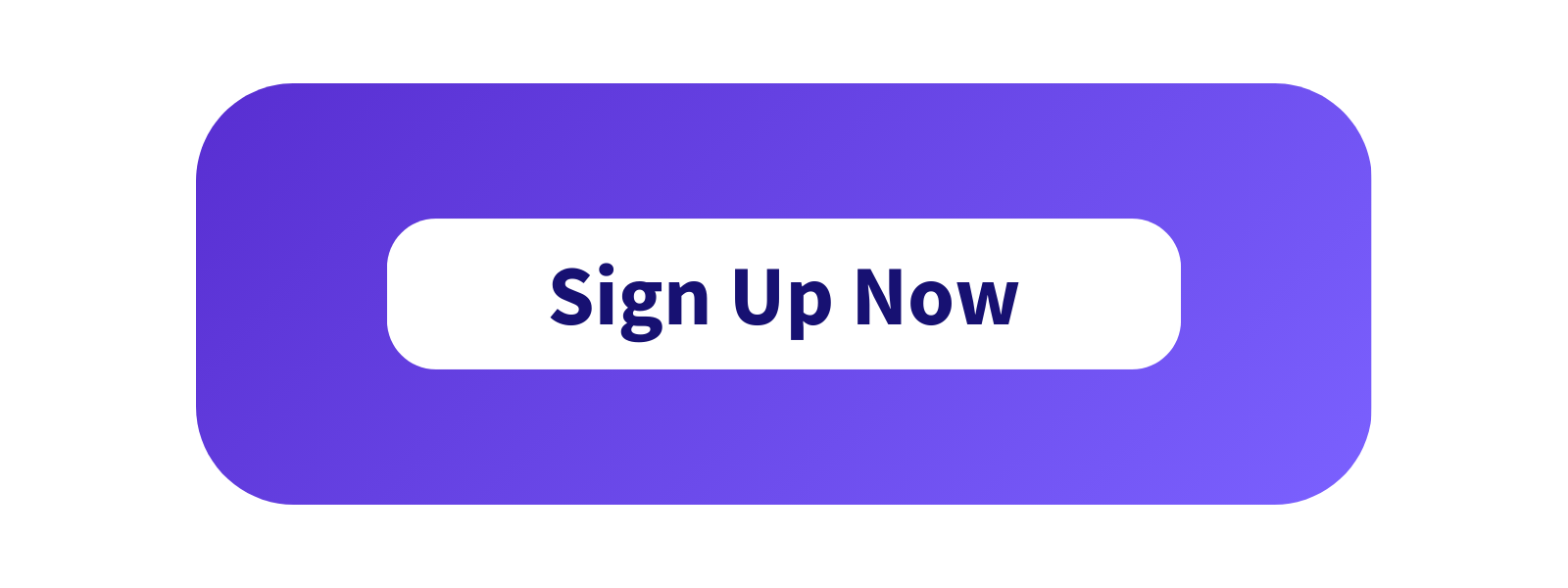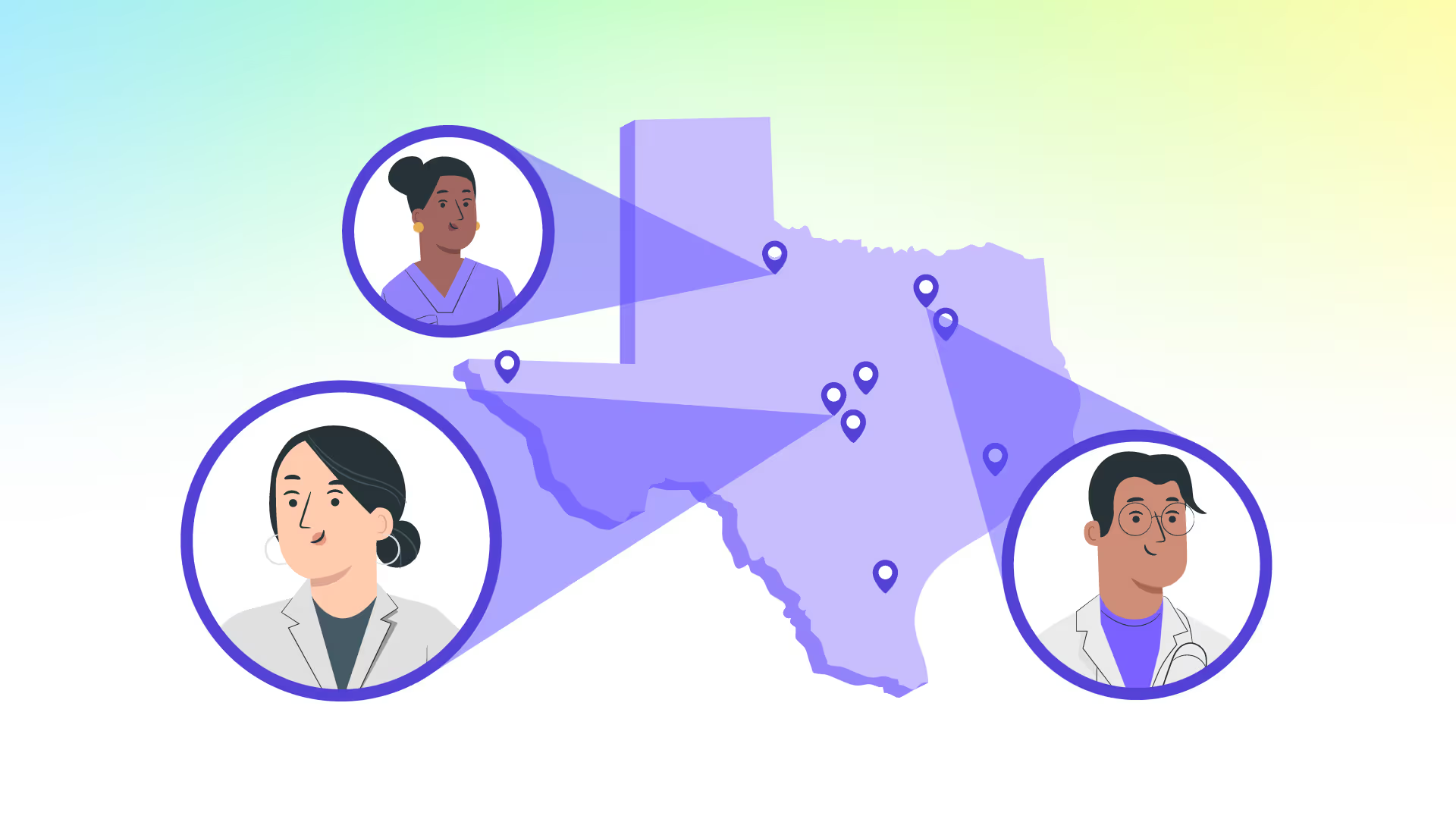TL;DR: Key Takeaways for Kansas NP Students
- Kansas faces a preceptor crisis: With 29% of registered nurses planning to retire within five years and nursing program enrollments down 39%, competition for clinical placements has intensified across Kansas communities, from Kansas City to rural clinics in underserved areas.
- Universities provide limited support: Most Kansas nursing programs expect students to independently secure preceptors despite the growing complexity, leaving nurse practitioner students to balance full-time work, coursework, and family responsibilities while searching for clinical sites.
- Each Kansas region offers unique opportunities: Kansas City provides extensive networks through the Kansas Health System, Wichita offers growing accessibility for family medicine and primary care rotations, Topeka features state facilities, and rural Kansas delivers comprehensive clinical experiences with committed mentors who serve as true role models.
- Successful students start early and use strategic approaches: The most effective NP students in Kansas begin their search at least one year ahead, build authentic relationships with physicians and advanced practice providers, and increasingly turn to professional placement services to simplify finding preceptors.
- Professional support transforms the process: Rather than spending months on individual outreach, accessing a vetted network of nurse practitioner preceptors in Kansas allows students to focus on developing clinical skills and knowledge while ensuring timely graduation and career advancement.
- Ready to take the next step? Create your free NPHub account to explore preceptors across Kansas who are ready to support your success.
It's 2 AM, and you're staring at your laptop screen again. Another email rejection from a potential preceptor in Kansas City. Another "we're not taking students this semester" response from a specialty clinic in Wichita. If you're a nurse practitioner student in Kansas, this scene probably feels all too familiar.
You're not alone in this struggle. Across Kansas, from the bustling medical centers of the Kansas City area to the community health clinics in Topeka, NP students are facing an increasingly challenging reality: finding qualified clinical preceptors has become one of the biggest obstacles to graduation. Whether you're enrolled in a family nurse practitioner program at Rockhurst University or pursuing a mental health specialization elsewhere, the process of securing placements can feel overwhelming when you're already balancing work, life, and school.
The good news? You don't have to navigate this alone. Many students find that having access to the right support system, one that prioritizes their needs and timeline, can transform months of frustration into a clear path forward.
Start your search with NPHub's free account and connect with vetted NP preceptors in Kansas who are ready to help you graduate on time.
The Mounting Pressure Kansas Students Face
The stress goes far beyond just securing a clinical placement. You're likely juggling:
- Full-time nursing work to pay bills and support your family
- Demanding coursework that requires at least one year of intensive study
- Family responsibilities that don't pause for your education goals
- Looming deadlines that threaten to delay your graduation by an entire semester
Every week that passes without securing a preceptor isn't just frustrating—it's financially devastating. Extended programs mean additional tuition costs, delayed career advancement, and prolonged stress on your family. For many Kansas students, the dream of advancing their nursing practice and developing leadership skills feels increasingly out of reach.
The irony? Kansas communities desperately need more advanced practice providers to serve diverse patient populations, yet the very system designed to train the next generation of nurse practitioners is creating roadblocks to that mission.
A Growing Problem Across Kansas Healthcare
This isn't just your individual struggle—it's a statewide challenge affecting Kansas nursing education. While the Kansas Health System and other major healthcare networks continue to expand their services, the infrastructure to support clinical education hasn't kept pace. Students pursuing specialties in primary care, mental health, and cardiology often find themselves competing for limited preceptor spots with fellow students from multiple university programs.
But here's what's changing the game for Kansas students: Rather than continuing to navigate this challenge alone, successful students are discovering that professional support can transform their clinical placement experience from months of frustration into a streamlined, supported process.
If you're ready to move from endless searching to secured placements, creating an NPHub account gives you immediate access to preceptors across Kansas who are already committed to supporting student success. The solution isn't hoping for better luck—it's joining the network that Kansas students are already using to secure their clinical rotations and graduate on time.
Why Finding Preceptors in Kansas Is So Challenging
The struggle to secure clinical placements isn't unique to you, it's a statewide (and nationwide) crisis that's been building for years. Understanding the root causes can help you navigate this challenging landscape more strategically, so you can make informed decisions about your next steps.
The Numbers Tell a Sobering Story
Kansas is facing a perfect storm of workforce challenges. The Kansas Nursing Workforce Center reports that nursing shortages are anticipated in the future as 29% of registered nurses and 23% of licensed practical nurses in Kansas are planning to retire within the next five years. Meanwhile, enrollments in nursing education programs have been down 39% over the last 10 years.
This creates an impossible equation: fewer experienced clinicians available to serve as preceptors, while nursing programs continue to graduate students who need clinical rotations. For NP students pursuing specialties like primary care, family medicine, acute care, or mental health, the competition for qualified supervision has never been more intense.
When Universities Leave Students to Navigate Alone
One of the most frustrating aspects is the lack of institutional support. There is a significant shortage of expert clinical preceptors, and there is a lack of consistency in preceptor training. Many Kansas nursing programs operate under the assumption that students will independently secure their placements, despite the growing complexity of this task.
This "figure it out yourself" approach places enormous pressure on students already managing:
- Full-time employment in demanding nursing roles
- Advanced coursework requiring significant study time
- Family responsibilities that don't pause for clinical rotations
- Financial constraints that limit placement options
The Invisible Burden
Perhaps the most challenging aspect is that preceptors provide an essential service that is invisible and uncompensated. You're essentially asking busy professionals—board certified nurse practitioners, physicians in internal medicine or family practice, faculty members juggling their own patient loads—to donate their time to teach and mentor you. Many are hesitant after past negative experiences, concerned about reduced productivity, or simply at capacity with the students they already supervise.
Meanwhile, you're trying to balance your own full-time commitments while sending outreach after outreach to clinics, outpatient practices, and specialty offices across Kansas.
The Traditional Model Is Breaking Down
The reality is clear: the traditional model, where students independently reach out to potential preceptors while managing work, life, and school, simply isn't sustainable in today's healthcare environment. It places the entire burden of finding clinical education opportunities on your shoulders, with no guarantee of success and real consequences if your search takes too long.
This is why more Kansas students are exploring professional placement support that can navigate these complexities on their behalf. Rather than spending months cold-emailing clinics, many are choosing to access established networks of vetted preceptors, allowing them to focus on their coursework, their patients, and their families while knowing their clinical placement is secured.
If you're feeling the weight of this search and want to explore a more supported path forward:

Kansas Cities and Clinical Opportunities
Despite the challenges, Kansas offers diverse clinical learning environments across its major metropolitan areas and rural communities. Students can pursue clinical specializations in areas such as primary care, mental health, cardiology, and pulmonary medicine. Clinical sites serve a wide range of patients, including pediatric, adolescent, adult, and geriatric populations. Understanding each region's unique characteristics can help you target your search strategically.
Kansas City: The Healthcare Hub
Kansas City offers the most extensive network of clinical sites and advanced practice opportunities. The Kansas Health System anchors a robust healthcare ecosystem serving as a magnet for nurse practitioner students seeking comprehensive experiences.
The metro area provides opportunities for:
- Primary care in hospital-based and community clinic settings
- Specialty care, including cardiology, mental health, and advanced subspecialties
- Leadership skills development through complex healthcare teams
- Urban patient populations with diverse health needs
Competition remains intense due to the concentration of nursing programs, but students often find success exploring both the Missouri and Kansas sides of the metro area.
Wichita: Growing Medical Community
Wichita has emerged as Kansas's second-largest healthcare market, with expanding opportunities that often provide more accessible placements than Kansas City. The city's networks have been actively recruiting advanced practice providers, creating a supportive environment for students.
Wichita offers strong opportunities in community health settings, family practice, mental health services, and growing specialty clinics. Many students find Wichita preceptors more available and willing to mentor the next generation of nurse practitioners.
Topeka: State Capital Advantage
As Kansas's capital, Topeka offers unique opportunities through state facilities and community health centers. The presence of the state government creates distinctive practice settings valuable for public health experience.
Students can access state health facilities, community health centers serving underserved populations, and programs providing insight into health policy. Topeka's smaller healthcare community often translates to more personalized mentoring relationships.
Rural Kansas: Hidden Opportunities
Rural Kansas communities present unique advantages for students willing to explore beyond metropolitan areas. These settings provide exceptional learning experiences with greater autonomy and exposure to the full scope of advanced practice.
Rural opportunities include comprehensive care experiences, mentorship from providers serving multiple roles, and community health perspectives addressing health disparities. Many rural preceptors eagerly mentor future providers who might consider serving underserved communities after graduation.
Whether you're drawn to Kansas City's sophisticated networks or rural Kansas's community-focused care, each region offers distinct advantages for developing your skills as a future nurse practitioner. Creating an NPHub account gives you immediate access to vetted preceptors across all these Kansas markets, eliminating the guesswork and time-consuming outreach that typically derails students' clinical placement timelines.
Discover NP Preceptors Near You in Kansas
- Guide to Secure Overland Park NP Preceptors
- How to Connect with Wichita NP Preceptors and Secure Your Clinical Rotations
- Olathe NP Preceptors: Everything You Need to Know to Secure Your Clinical Rotations
What Successful Kansas Nurse practitioner Students Are Doing Differently
While many students wait until the last semester to begin their preceptor search, NP students in Kansas have cracked the code by taking a more strategic, proactive approach to securing clinical placements. Successful students strive to achieve their vision of becoming nurse practitioners by consistently seeking opportunities that align with their professional goals.
Starting Early Makes All the Difference
The most successful students begin their preceptor search at least one year ahead of their clinical rotation requirements. This timeline allows them to build genuine relationships rather than making desperate last-minute requests. Early planning also gives them leverage to be selective about placements that align with their career goals and specialty interests.
Strategic Relationship Building
Rather than cold-calling clinics, successful students focus on:
- Networking at Kansas nursing conferences and professional development events
- Leveraging relationships with current educators who have established preceptor connections
- Building authentic connections with physicians and advanced practice providers during other clinical experiences
- Engaging with the Kansas Health System and other major networks through volunteer opportunities
Professional Support Systems
The most strategic students recognize that securing quality preceptors requires more than individual effort. They're increasingly turning to professional placement services like NPHub, which maintains established relationships with nurse practitioner preceptors in Kansas communities. This approach allows them to focus their energy on coursework and clinical performance rather than endless networking and coordination.
The key insight? Successful students treat preceptor relationships as professional partnerships rather than transactional arrangements, creating value for busy healthcare providers while advancing their own education and career development.
Taking Action: Your Next Steps & Your Future as a Kansas NP
The path forward doesn't have to be overwhelming. While the challenges are real, successful Kansas students are proving that strategic action can transform the clinical placement experience from months of frustration into a clear pathway to graduation.
Your clinical placement journey starts with taking control of the process rather than hoping for the best:
- Assess your timeline and identify exactly when you need placements secured
- Document your specialty interests and preferred Kansas locations
- Consider professional placement support to accelerate your search
The students who succeed the fastest recognize that securing quality preceptors requires accessing established relationships and proven systems.
Rather than spending months navigating the complex web of Kansas healthcare networks, university requirements, and preceptor availability, you can access NPHub's vetted network of committed preceptors across Kansas communities. The platform connects you with preceptors who understand their role in developing the next generation of nurse practitioners.
Create your free NPHub account today at nphub.com to access Kansas preceptors who are ready to support your clinical success.
Frequently Asked Questions
1. How far in advance should I start looking for preceptors in Kansas?
Successful Kansas nurse practitioner students typically begin their search at least 4-6 months ahead, some even one year ahead of their clinical rotation requirements. This timeline allows you to build genuine relationships with potential preceptors rather than making desperate last-minute requests. Starting early also gives you leverage to be selective about placements that align with your specialty interests in primary care, mental health, cardiology, or other advanced practice areas across Kansas communities.
2. Are there differences in preceptor availability between Kansas City and rural Kansas?
Yes, each region offers distinct advantages. Kansas City provides the most extensive network through the Kansas Health System and other major healthcare networks, but competition is intense due to multiple university programs. Rural Kansas communities often have more available preceptors who are eager to mentor the next generation of nurse practitioners and provide comprehensive care experiences. Wichita and Topeka fall somewhere in between, offering growing opportunities with potentially more accessible placements than Kansas City. It's worth noting that most nurse practitioners in neighboring Missouri work in metro areas, which contributes to a similar shortage of preceptors in rural clinics across the region, making Kansas's rural opportunities even more valuable for students willing to explore them.
3. What are the preceptor qualification requirements in Kansas?
Preceptor qualifications in Kansas are governed by both state board regulations and individual university standards. Generally, preceptors must be licensed Advanced Practice Registered Nurses (APRNs) or physicians (MD or DO) who hold active licensure in Kansas. Many programs require preceptors to be board certified in their specialty area, whether that's family nurse practitioner, internal medicine, psychiatry, acute care, or another field. Additionally, preceptors must complete a formal orientation that covers the pedagogical aspects of the student-preceptor relationship, including how to teach, provide supervision, and evaluate student competency.
4. Can other healthcare professionals besides APRNs or physicians serve as my preceptor?
In certain circumstances, yes. If your program requires more than 750 practice hours, students may be precepted by other licensed interdisciplinary professionals who hold at least a master's degree in a health science field. This can expand your options and provide valuable exposure to different clinical perspectives. However, the majority of your supervised hours will typically need to be with an APRN or physician. Always confirm with your school's faculty and review your program requirements to understand exactly which clinicians qualify for your specific rotations.
5. How many clinical hours do I need to complete in Kansas?
As of March 1, 2025, the clinical component for NP tracks in Kansas must consist of at least 750 practice hours. These hours are completed across multiple rotations under the direct supervision of qualified preceptors. Your program may require additional hours depending on your specialty, for example, family nurse practitioner, psychiatric mental health, or pediatrics tracks may have varying requirements. This is why starting your search early and securing reliable NP preceptors is so critical to staying on track for graduation.
6. What will I actually learn during my preceptorship beyond clinical skills?
Clinical rotations offer far more than just hands-on patient care experience. During your preceptorship, you'll learn the practical realities of nursing practice that aren't taught in the classroom, time management, prioritization, treatment planning, and navigating the business aspects of healthcare. You'll gain knowledge in diagnosis, chronic disease management, and how to serve diverse patient populations including pediatric, adolescent, adult, and geriatric patients. Your preceptor is responsible for your professional socialization, helping you develop the confidence and clinical judgment to practice independently. The best preceptors become true role models, offering regular constructive feedback and formally evaluating your performance to ensure you're prepared for licensure and real-world practice.
7. Where should I look to find NP preceptors in Kansas?
Students should target outpatient clinics, primary care offices, urgent care centers, family practice settings, and community health sites aligned with their specialty. Specialty clinics in areas like cardiology, psychiatry, and internal medicine can also be excellent options depending on your program focus. Resources for finding preceptors include your school's clinical placement office, professional organizations like the Kansas Advanced Practice Nurses (KAPN) directory, and specialized matching services like NPHub that connect students with vetted nurse practitioner preceptors across Kansas. Many students find that professional placement services significantly reduce the time and stress of the search process.
If you're ready to simplify your search and connect with qualified preceptors who meet Kansas requirements, create your free NPHub account to explore your options today.
8. Do I have to pay for preceptor placement services?
While many students attempt to secure placements independently, there's a growing trend toward professional placement services, especially as competition for clinical preceptors intensifies. NPHub operates on a fee-for-service model that many students find cost-effective compared to the potential financial impact of delayed graduation. The investment often pays for itself by preventing semester delays and the associated tuition costs, while allowing you to focus your energy on coursework, clinical performance, and your life outside of school. For many NP students, the choice comes down to weighing months of uncertain searching against the peace of mind that comes with a supported, streamlined process.
9. Can I work with the same preceptor for multiple rotations?
This depends on your program requirements and the preceptor's availability. Many Kansas students find that building strong relationships with preceptors can lead to opportunities for multiple rotations, which provides continuity in their learning experience. However, most programs require exposure to different practice settings and patient populations, such as outpatient versus acute care, or adult versus pediatric patients to develop comprehensive skills. Working with preceptors who serve as role models and mentors often leads to valuable professional networks that extend beyond your student years, opening doors for job opportunities after you graduate.
10. What is my preceptor's role and responsibility during my clinical rotation?
Kansas preceptors are responsible for the direct supervision and professional socialization of graduate nursing students. This means they oversee your clinical experiences, guide your decision-making with patients, and help you develop the competence to practice independently. Preceptors provide regular constructive feedback throughout your rotation and formally evaluate your performance against program competency standards. They also help you understand how to navigate real-world clinical environments, from documentation and treatment protocols to working within healthcare teams. A strong preceptor relationship is one of the most important factors in your success as a future nurse practitioner.
Still have questions about finding the right preceptor for your Kansas clinical rotations? Create your free NPHub account to get personalized support and access to preceptors who are ready to help you succeed.
About the author
- NPHub Staff
At NPHub, we live and breathe clinical placements. Our team is made up of nurse practitioners, clinical coordinators, placement advisors, and former students who’ve been through the process themselves. We work directly with NP students across the country to help them secure high-quality preceptorships and graduate on time with confidence. - Last updated
December 16, 2025 - Fact-checked by
NPHub Clinical Placement Experts & Student Support Team - Sources and references
- https://www.nphub.com/blog/build-preceptor-relationships
- https://www.nphub.com/blog/key-tips-to-find-a-preceptor-for-np-students
- https://www.sciencedirect.com/science/article/pii/S8755722324001868
- https://www.kumc.edu/about/news/news-archive/state-of-nursing-in-kansas-report-released.html
- https://www.nphub.com/blog/the-hefty-cost-of-delaying-np-graduation
Find a preceptor who cares with NPHub
Book a rotation.webp)








.webp)


.webp)



%20(3)%20(2).svg)
.webp)